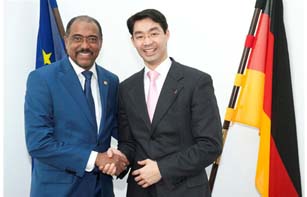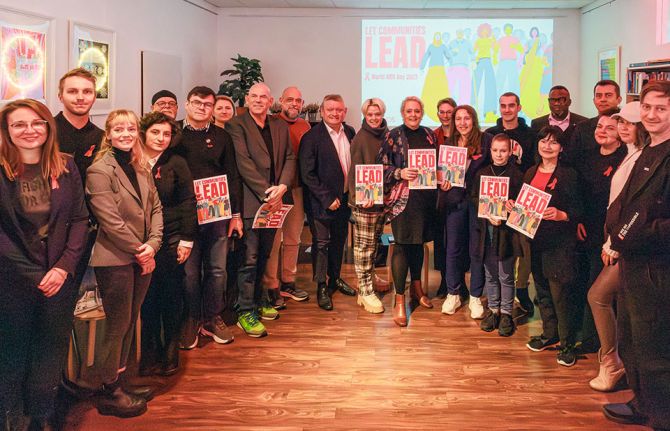
Feature Story
Official visit to Berlin for meetings with Minister of Foreign Affairs and Vice-Chancellor, and Minister of Health
09 February 2011
09 February 2011 09 February 2011
UNAIDS Executive Director Michel Sidibé met with a number of German ministers and parliamentarians on 8 February, including Dr Philipp Rösler, Germany’s Minister of Health.
UNAIDS Executive Director Michel Sidibé held discussions with the German government on Tuesday on the future of the global AIDS response and asked for its continued support to keep HIV on the international development agenda.
In meetings with Guido Westerwelle, Germany’s Minister of Foreign Affairs and Vice Chancellor, and Dr Philipp Rösler, the Minister of Health, Mr Sidibé called on Germany to maintain its investments in AIDS. He also urged the country to play an active role in the June 2011 UN General Assembly High-Level Meeting on AIDS, ensuring participation at the highest possible level from a range of ministries. Dr Rösler and Mr Westerwelle, in turn, expressed their interest in attending the meeting.
Mr Sidibé shared with the German Ministers his concern over the growing HIV epidemic in Eastern Europe and encouraged Germany to expand its support to this region. Between 2000 and 2009, the number of people living with HIV in Eastern Europe and Central Asia nearly tripled—from an estimated 530 000 to 1.4 million. The Russian Federation and Ukraine together account for nearly 90% of newly reported HIV infections.
While in Berlin, Mr Sidibé also met with a number of members of German parliament, including Gudrun Kopp, Parliamentary State Secretary at the Ministry for Economic Cooperation and Development, and Annette Widmann-Mauz, Parliamentary State Secretary at the Ministry of Health. He briefed the parliamentarians on the status of the global HIV epidemic, the High-Level Meeting in June and UNAIDS’ strategy for the period 2011-2015.
In his discussions with German officials on Tuesday, Mr Sidibé raised a number of other topics, including access to HIV prevention for populations at higher risk of HIV exposure—such as men who have sex with men, sex workers, transgender people, and people who inject drugs. He stressed the importance of ensuring that trade agreements do not pose an obstacle to sustained access to AIDS treatment. Mr Sidibé also highlighted that AIDS funding is a shared responsibility, requiring increased and predictable investments from both donor governments and developing countries.
In 2009, Germany invested nearly US $398 million in the global AIDS response—the third largest contribution from a donor government after the United States and the United Kingdom.



